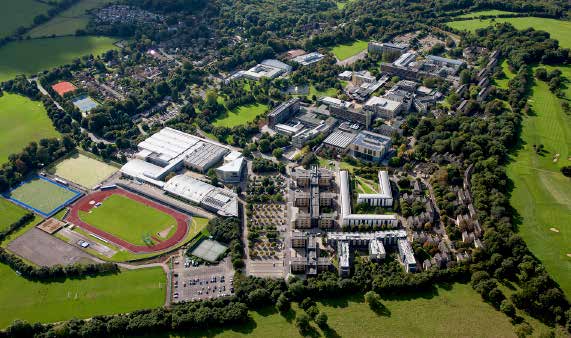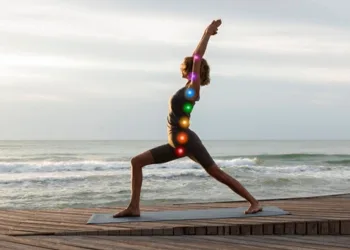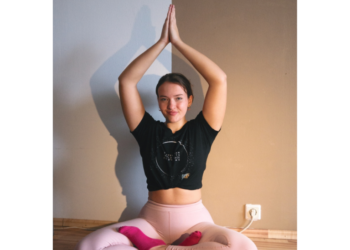Stephen Baddeley, director at the University of Bath Sports Centre, is a former British badminton player. The Sports Centre at Bath has become a takeoff point for athletes, and the university takes pride in the fact that there have been medal winners from the centre in three successive Olympic Games: London (2012), Rio de Janeiro (2016), and Tokyo (2020/2021). Athletes from the sports centre won seven gold medals in the JulyAugust Tokyo Olympics: Tom Dean and James Guy, two golds each in swimming, Anna Hopkin, Freya Anderson and Calum Jarvic in swimming relay events, Joe Choong and Kate French in modern pentathlon. In an email interview, Baddeley tells Namaste Bharat how the system created at the Bath Sports Centre works.

Excerpts from the interview:
What is the basic idea behind Team
‘Our primary aim is to provide an inspirational environment where people of all ages and abilities can get active and pursue a healthy lifestyle.’
Bath and the Sports Centre at the University of Bath? Is the aim to produce winners at the Olympics, Paralympics, and other major world sport events?
The Team Bath brand was established two decades ago to encompass all of the sporting activity at the University of Bath, much of which is based around the facilities at the £35 million Team Bath Sports Training Village. The multi-sport building is at the heart of the University’s campus and is fully open to students, staff and the public, as well as elite athletes training for the Olympics, Paralympics and other international events such as the Commonwealth Games. Our primary aim is to provide an inspirational environment

‘We are incredibly proud that so many student-athletes, like Joe Choong and Kate French, have gone on to excel in their dual careers of study and sport.’

where people of all ages and abilities can get active and pursue a healthy lifestyle but we are also a designated UK Sport Elite Training Centre and proud to help some of the world’s top athletes across a wide range of sports pursue and achieve their medal
dreams. As well as facilities like the swimming pool, indoor and outdoor athletics tracks, tennis courts and judo dojo, they have access to a dedicated high-performance gym
and sport science support like physiotherapy, all on-site. They also get to mix with athletes from other sports and there is no doubt that success breeds success.
How do you choose who to train for the big events?
The majority of high-performance athletes who train at Team Bath do so with one of the National Governing Bodies (NGBs) based on-site. We are home to National Training Centres for British Swimming, British Triathlon, Pentathlon GB, Wheelchair Fencing and the British Bobsleigh & Skeleton Association, among many others, and athletes are selected by the NGBs to train here based on their podium potential. Other sportspeople who either receive direct funding, are self-funded or want to combine training with pursuing an academic course at the University of Bath can also apply for full-time athlete status which allows them to use our facilities.
What sets apart the facilities? Is it equipment? Coaches? Or is it the general ambience?
It is all of those things combined. The main thing is the talent, dedication and drive of the athletes themselves but the outstanding coaches and support staff who work here, both from Team Bath and the NGBs, help to ensure they fulfil their potential. We are always investing in the facilities to provide sportspeople with everything they need to succeed and the mix of sports provides the feeling of a mini Athletes’ Village. The athletes also enjoy the fact that the facilities are shared with students and members of the public as it provides an added buzz to the general atmosphere.
Do you look to private sector sponsors or to the government? Which works better?
The Sports Training Village is run by Department of Sports Development and Recreation which is part of the University of Bath. We raise significant commercial income from our activities but still operate at a deficit because of our support of highperformance sport, including that of our students.This deficit is covered by the University because of the prestige and profile generated by our activities together with the enhancement of student experience and well-being. We do have a number of commercial sponsors who associate with the Team Bath brand and in particular, our semi-professional Superleague netball team attracts a number of commercial sponsorships.
Many of your winners are students at the University. The pentathlon medal winners, for example, are pursuing different courses (Joe Choong in mathematics and Kate French in sports performance). How does that combination work?
We are incredibly proud that so many tudentathletes, like Joe and Kate, have gone on to excel

‘We raise significant commercial income from our activities but still operate at a deficit because of our support of highperformance sport.’
in their dual careers of study and sport. Sporting careers are relatively short so it is important to have a post-competition career in mind and the University of Bath is one of the UK’s leading universities academically. The Sports Training Village is at the heart of the University campus, so it is convenient for students to go straight from training to lectures, then grab some food in one of the many eateries on-site before returning to training. Student-athletes often find there are transferable skills between the two, such as time management and dealing with stress. We also provide many high-performing student-athletes, such as double Olympic champion swimmer Tom Dean, with financial assistance through sporting scholarships and the University is supportive with things like remote learning and rearranging deadlines if students are away competing or at training camps.
Is there a need for a national programme to prepare and win medals at the Olympics?
Olympic and Paralympic sport in Great Britain is supported by National Lottery funding, allocated by UK Sport, and there is no doubt that since it was introduced 24 years ago Great Britain has been far more successful in terms of medals. Just one gold was won by Team GB at the 1996 Atlanta Olympics and 121 have been won in the five Games since. Without National Lottery funding we wouldn’t have been able to build the Sports Training Village and provide a home for the elite athletes, coaches and support staff so a national programme does dramatically improve medal chances.
What is the national value of producing winners in sporting events?
Watching athletes achieve their dreams, not only the medal winners but all those representing their country on the very biggest sporting stage, is a source of great pride both nationally and locally. We all remember the positive, celebratory atmosphere in this country when we hosted the London Olympics in 2012 and the success at Tokyo 2020 has provided a lift following an incredibly difficult 18 months.
Is there a danger of professionalising sport? Is the idealistic amateur disappearing from the scene?
In order to be successful in sport on the world stage, any athlete needs to be able to dedicate considerable time to pursuing excellence and requires the support of coaches and sport scientists/medics as well as access to training facilities and competition. All of this costs money. It is possible to study alongside pursuing excellence and I would argue this is often an excellent thing to do to provide a balance in life. Similarly, part-time working that doesn’t conflict with training and competition can be an option. However, to ucceed at the highest levels, all athletes must be in a position to adopt a professional approach and have the time and resources to enable high-quality training and appropriate ompetitive experience.
Is technology dictating the levels and standards of sporting excellence?
Sportspeople are always looking for those crucial ‘marginal gains’ and technology is one aspect that can help provide that extra edge but the main factor behind sporting excellence remains the talent, commitment and sheer hard work of the athletes themselves.








